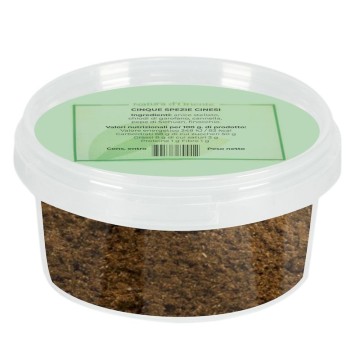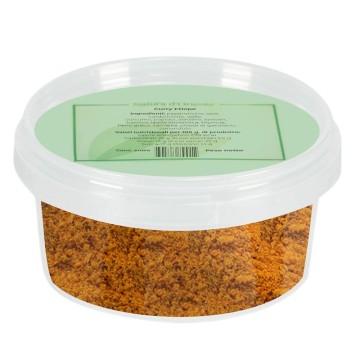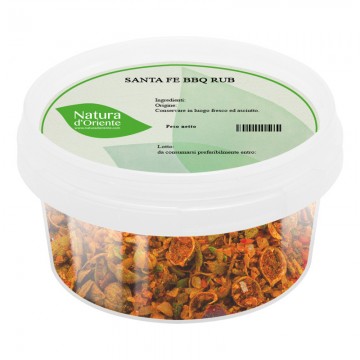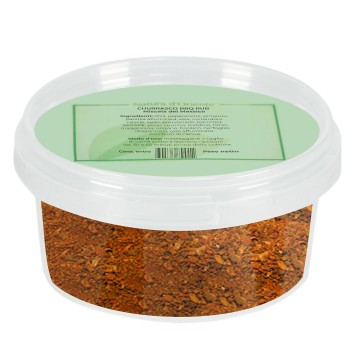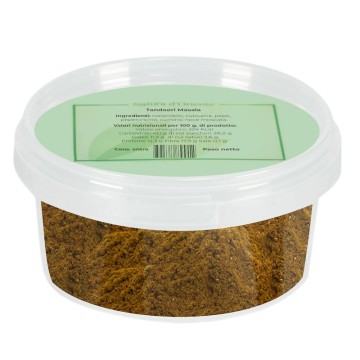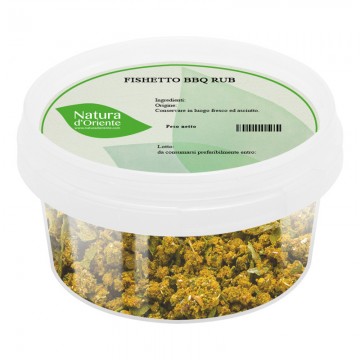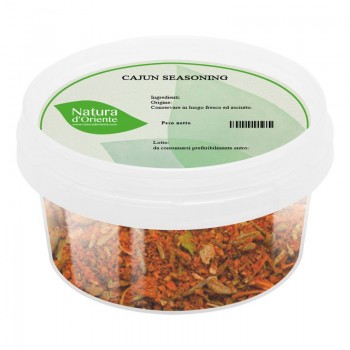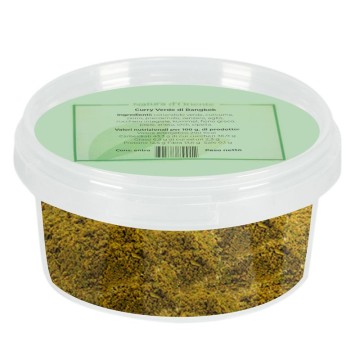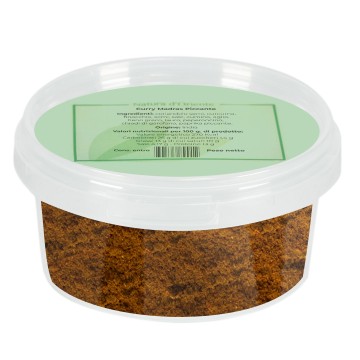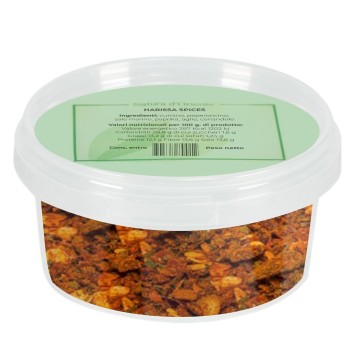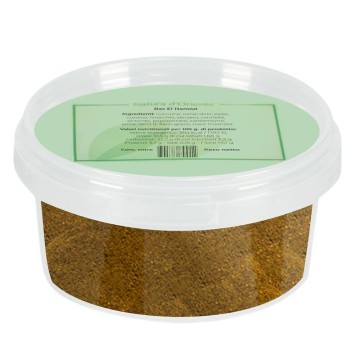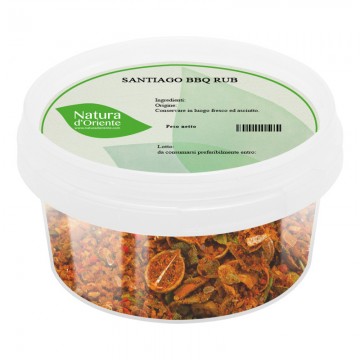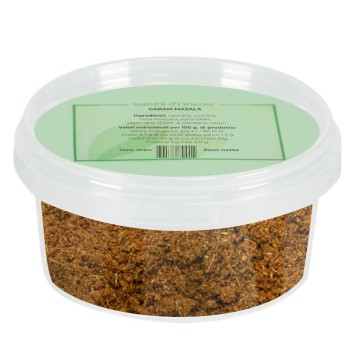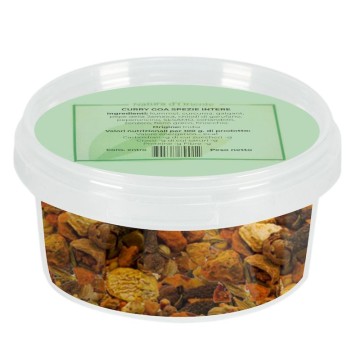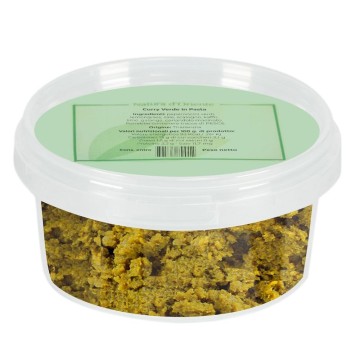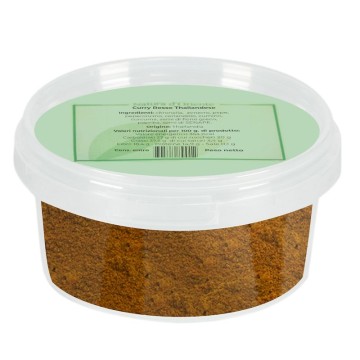This blend is inspired by the famous North American rub of the same name, for its pungent taste suitable for cooking chicken wings. Created to flavor all white meats, vegetables and every cut of barbecue, including beef, the blend actually originated as an evocation of the flavors of bison (buffalo), raised and cooked in the vast American prairies. In the Great Plains, bison were cooked on the grill, first rubbing it with these blends to flavor it with notes of paprika, chili pepper, cayenne pepper, garlic and onion powder, black pepper. In some recipes developed over time, mustard, coriander and herbs (parsley, thyme, marjoram, etc.) were added.
The rub also contains cane sugar. It will create not only particular flavor nuances, but it will also form a thick and succulent crust, which gives all its deliciousness to the meat at the first bite. In recent times, in which bison is no longer a meat so present on the table, Buffalo BBQ has often been synonymous with a rub designed for recipes with chicken nuggets, grilled wings, pork tenderloin and other barbecue meat snacks.
This blend of spices combines with the tender meat of chicken wings that become crispy and spicy, with some acidic notes. The seasoning is made by dry rubbing the white meat, or by creating wet rubs with oil and vinegar, in which to dip the chopped chicken. This combination of "magical" spices, transforms meats or vegetables of monotonous flavor, into succulent dishes. For added flavor, some recipes use smoked paprika, and Himalayan salt for a special tone that goes well with white meats. A spicy, smoky blend. Buffalo seasoning is quite addictive, and can also be used on cooked food if you prefer a more spicy character.
How to use Buffalo BBQ blend in the kitchen
Use the rub to rub and dry massage meat – especially grilled/BBQ chicken wings or breasts, or baked chicken thighs. Coat each part of the meat evenly. Refrigerate for at least 1 hour before cooking on the barbecue. You can also rub the chicken and then pan-fry it with olive oil over medium-high heat.
Origins and History of BBQ Mixes – Rub
This hot sauce is inspired, as we have seen, by the time of the pioneers on the great American prairies, where bison (American buffalo) grazed.
The bison roamed North America in vast herds, and it is thought that they arrived in the American territory through a land passage, which once connected it with the Asian continent. The largest herds were found on the plains, in enormous quantities.
With the expansion of the American frontier westward, towards the famous far west around 1930, buffalo hunting became the main occupation, also for sustenance. Over the years, seasonings for bison meat have also been perfected, such as rubs to be applied before cooking, and from which modern Buffalo BBQ derives.
Spice mixes are used mainly on roasts, steaks and tender cuts. Dry rubs are not intended to tenderize the meat, and for tougher cuts it was common to create a marinade with oil or vinegar. To make sure it binds well to the meat, it is important to moisten the mixture but not add too much oil, so that it penetrates the fibers perfectly without overdoing it. For other cuts, they added flavor, and helped retain the juices of the meat, forming a succulent crust.
Spices, fresh or dried herbs, and other seasonings suitable for bison meat were combined. The current herds, which number about 200,000 buffalo in total, are not as large as those that once roamed the North American continent. But the tradition of rubs has remained, and is perfect for other meats.
Buffalo BBQ: side effects and contraindications
Barbecue or grill mixes should be taken in accordance with the recommended doses. In particular, the mix of hot spices can cause problems for those who suffer from gastrointestinal irritation and ulcers, or urinary tract irritation. BBQ mixes, if consumed in excess, can worsen inflammation conditions and cause effects such as burning in the palate, heartburn, diarrhea, irritation of the mucous membranes. It is necessary,Also, evaluate the individual ingredients of the BBQ mix, identifying whether they are already known for possible allergic reactions. Due to possible irritation, caution is advised when taking barbecue rubs for pregnant and breastfeeding women.

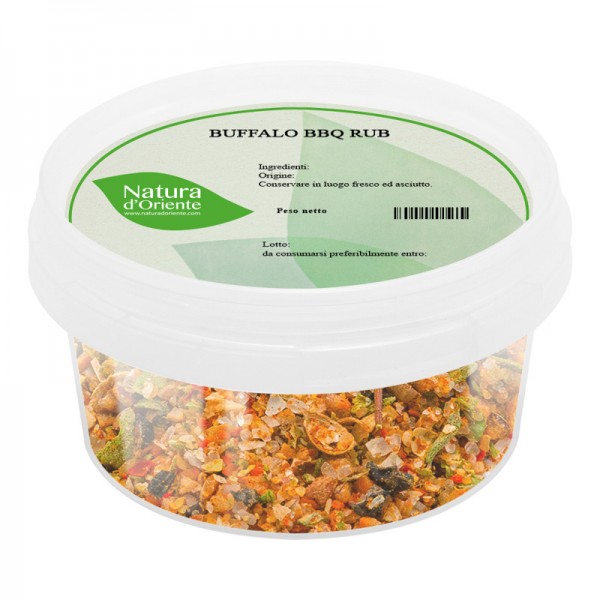









 No reward points for this product.
No reward points for this product.
